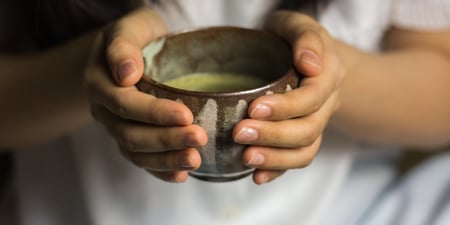
The World Health Organization defines traditional medicine[1] as “the sum total of the knowledge, skill, and practices based on the theories, beliefs, and experiences indigenous to different cultures, whether explicable or not, used in the maintenance of health as well as in the prevention, diagnosis, improvement or treatment of physical and mental illness”.
Traditional healing therefore varies from country to country but in Australia, it refers to the First Nations people and the deep connection between their culture and healing.
An article[2] by Australian Indigenous HealthInfoNet helps to define the complexity of traditional healing, explaining that there are a number of key aspects to it.
In essence, it is the prescription of ancient cultural knowledge to treat trauma and promote well-being, which may include bush medicines and spiritual healing, but it is also about connection to the country, pride in cultural identity and community connectedness.

Traditional healing originated in remote Australia - the western desert in Central Australia is home to the aboriginal healers, while Maparn is found in the Kimberley region of Western Australia.
Ngangkaṟi healers have been invited to work alongside Western doctors, who have researched their practices; and traditional healing methods are slowly becoming more widely accepted alongside mainstream medical practices. The Aṉangu Ngangkaṟi Tjutaku Aboriginal Corporation[3] (ANTAC), the first organisation of Aboriginal traditional healers in Australia, for example, provides its services at the Royal Adelaide Hospital in South Australia.
With knowledge passed down between generations, traditional healers have a high level of knowledge, can diagnose symptoms, and may often use methods akin to counselling, such as developing trust and shared understanding.
The article discusses how “nurturing a sense of cultural distinctiveness” is a crucial part of traditional healers’ approach to holistic health. Cultural elements integral to this are language and traditions, art, dance, stories, traditional food and medicines.
The practice of Dadirri - an Aboriginal form of meditation using deep listening and silent awareness to connect deeply with culture, country, others and oneself - also comes under the earth medicine umbrella of traditional healing. Dadirri contributes to a person’s overall sense of wholeness, peace and well-being.
To sum up, in their own words, traditional healing is about “embracing our life force to create a new and vibrant fabric that keeps us grounded and connected”.
References
1. Traditional, Complementary and Integrative Medicine. WHO; 2024.
2. Traditional healing and medicine. Australian Indigenous HealthInfoNet; [cited on 2024 Dec 26].
3. About us. Aṉangu Ngangkaṟi Tjutaku Aboriginal Corporation (ANTAC); [cited on 2024 Dec 26].
Disclaimer: This Content has been developed from our generous global community and is intended for informational purposes only. This Content is not, nor is it intended to be, a substitute for professional medical advice, diagnosis, or treatment and should never be relied upon. Further, the personal views and experiences published are expressly those of the author, and do not represent the views or endorsement of SoulAdvisor through the act of publication on our site.















